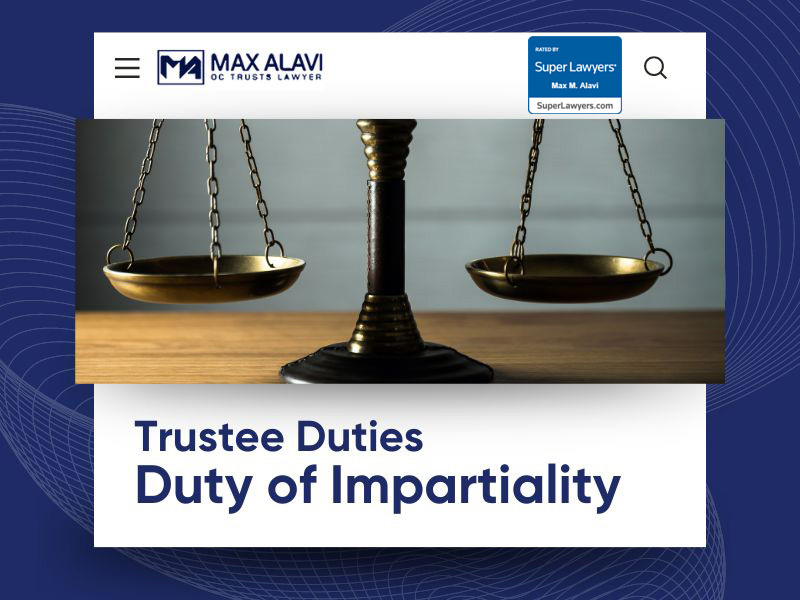This article delves into the intricate duties of trustees, with a focus on the duty of impartiality as outlined in the California Probate Code section 16003. Trustees must navigate the complexities of managing trusts by balancing the interests of multiple beneficiaries fairly. Through exploring the challenges of impartiality, the legal framework provided by section 16003, and a case study on the Estate of Bissinger, the article highlights the critical role of trustees in ensuring fair treatment for all beneficiaries. Furthermore, it underscores the importance of seeking legal guidance from experienced estate planning and trust litigation attorneys like Max Alavi, Esq., to navigate the challenges faced by trustees effectively.
Understanding the Responsibility of Impartiality in Trustee Duties
In the intricate world of trust management, trustees shoulder a multitude of responsibilities, and one critical aspect is the duty of impartiality. In the third installment of our Trustee Duties series, we delve into the complexities trustees face when tasked with treating all beneficiaries fairly. The duty of impartiality, as outlined in the California Probate Code section 16003, places trustees in the role of judges of fairness, navigating financial decisions that significantly impact the interests of multiple beneficiaries.
The Challenge of Impartiality:
Picture yourself as the trustee of a loved one’s trust – already grappling with the financial and emotional challenges of the role. Now, add the pressure of ensuring fair treatment for all beneficiaries, even when their interests diverge. It’s undoubtedly a formidable situation that demands careful consideration and a keen understanding of the trustee duty of impartiality.
Understanding California Probate Code Section 16003:
The California Probate Code section 16003 establishes the framework for the trustee duty of impartiality. In essence, if a trust has multiple beneficiaries, the trustee is obligated to judge what is fair and manage trust property in a manner that takes into account the interests of all parties involved. This duty becomes particularly daunting when pivotal financial decisions are on the horizon.
Case Study: Estate of Bissinger (1963):
To illustrate the challenges of impartiality, let’s explore the case of the Estate of Bissinger (1963). In this instance, a bank served as a trustee and faced conflicting wishes from beneficiaries regarding the corporate stock held in trust. One beneficiary advocated for selling all the stocks, while another wished to retain them. The bank, acting as a prudent fiduciary, sold some stock and invested the proceeds into tax-free bonds. The court validated the decision, deeming it a reasonable and careful move that upheld the duty of impartiality.
Seek Legal Guidance from an Award-Winning Attorney Today:
Trustee counsel is there to provide advice and context to trustee decisions so that if a dispute arises, the trustee is not hung out to dry and made the scapegoat in a feud between beneficiaries. For trustees navigating demands from diverse beneficiaries or entangled in legal disputes with dissatisfied beneficiaries, Max Alavi, Attorney at Law, APC, stands as a beacon of legal expertise. Max Alavi, Esq., a recognized Super Lawyer in probate and trust litigation, and his experienced team of trust and estate lawyers are ready to address your trustee challenges. Schedule a free consultation today to secure professional guidance tailored to your unique situation.






